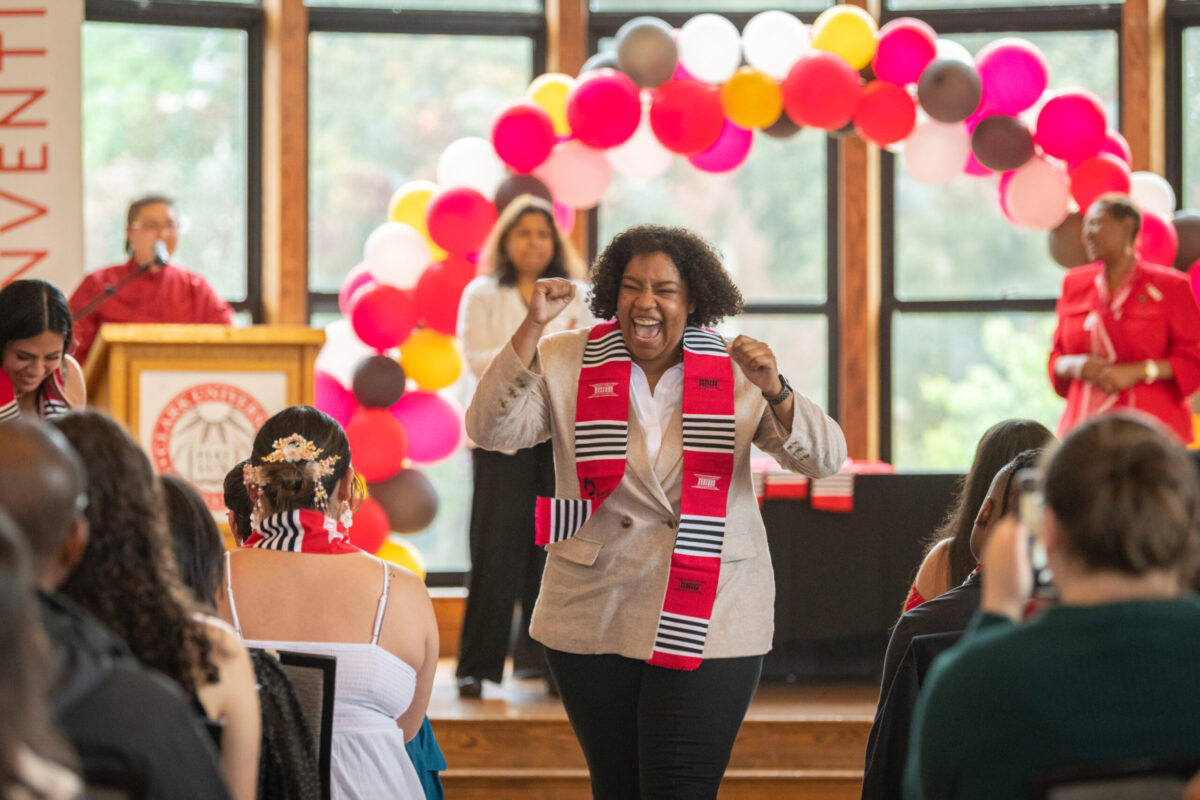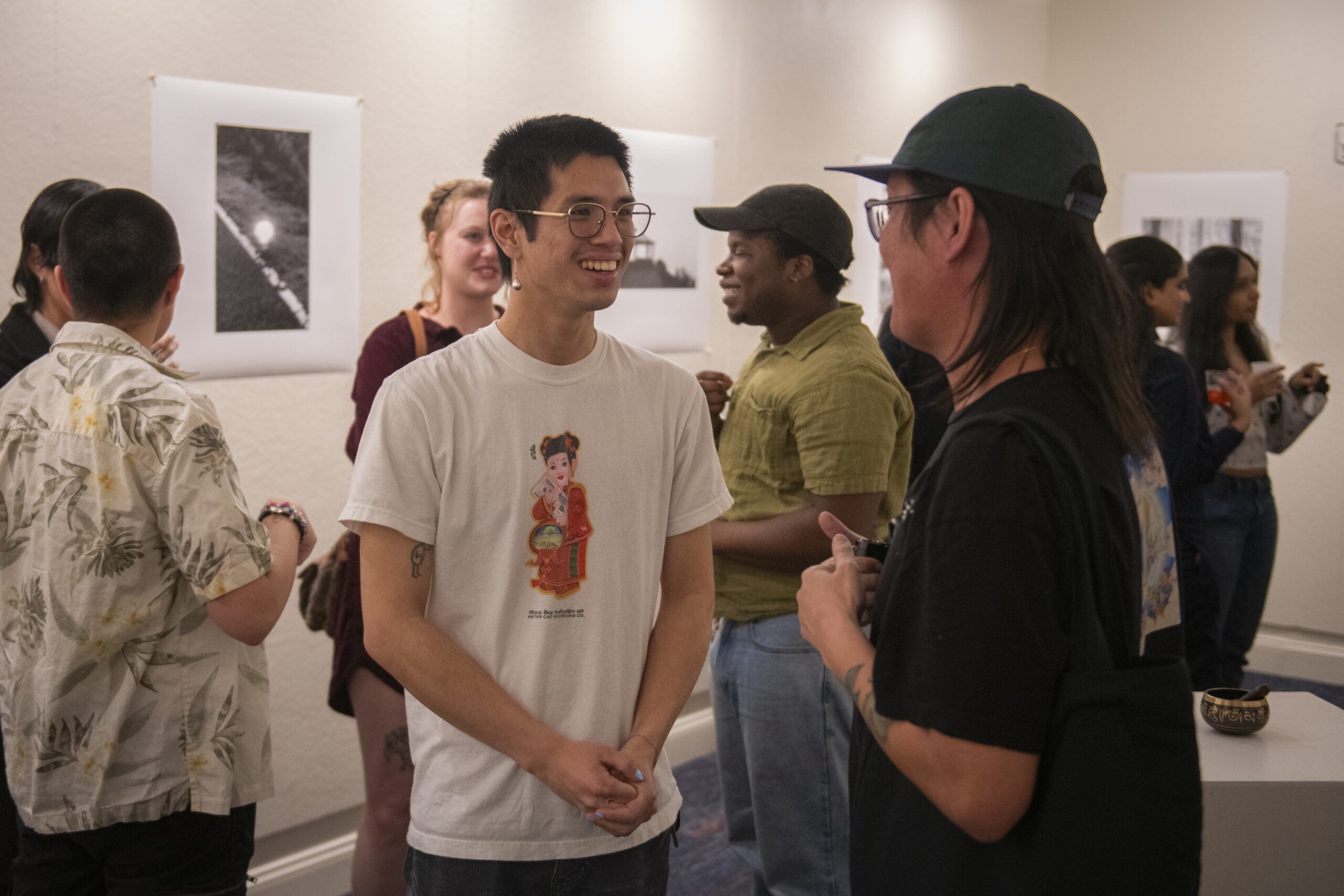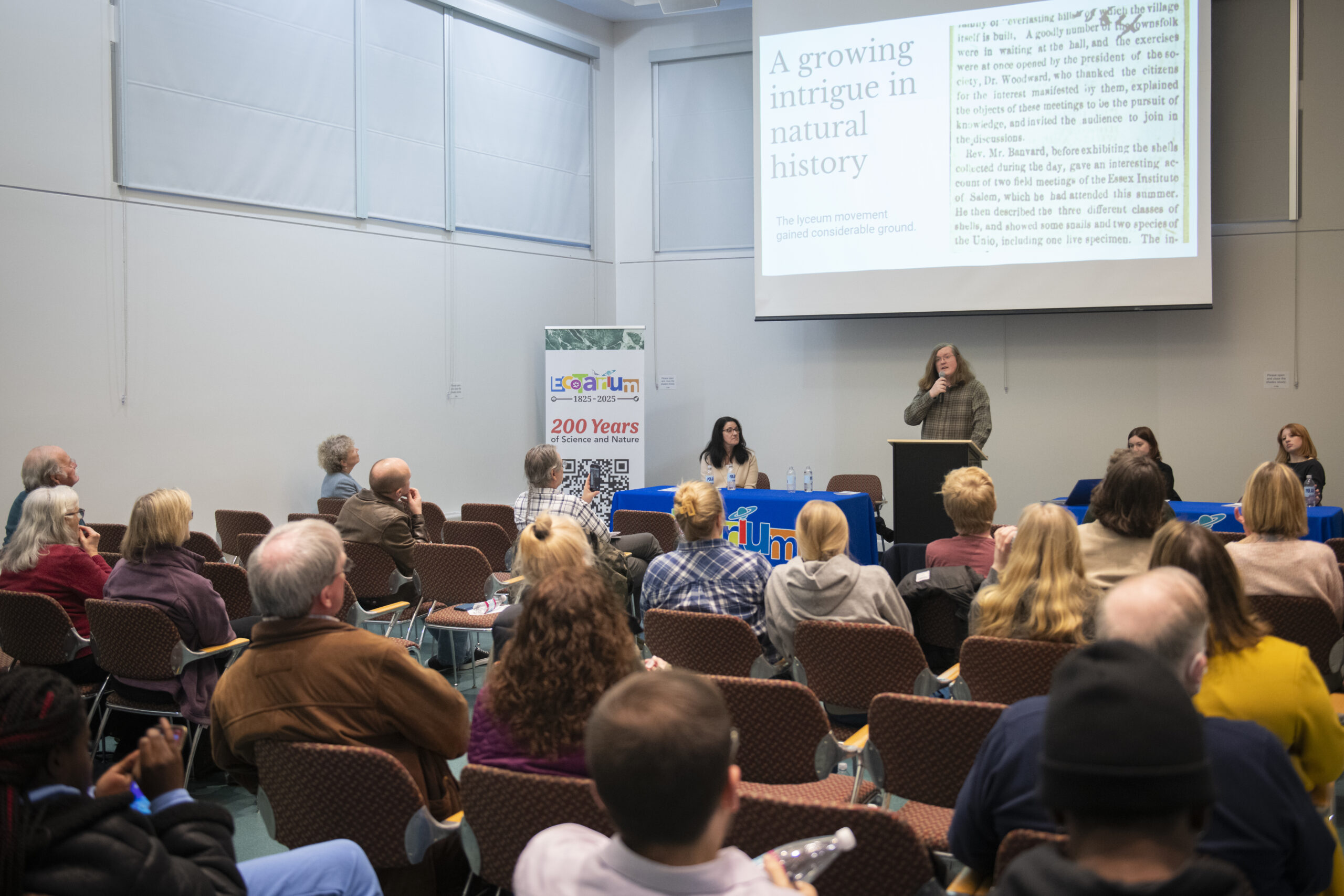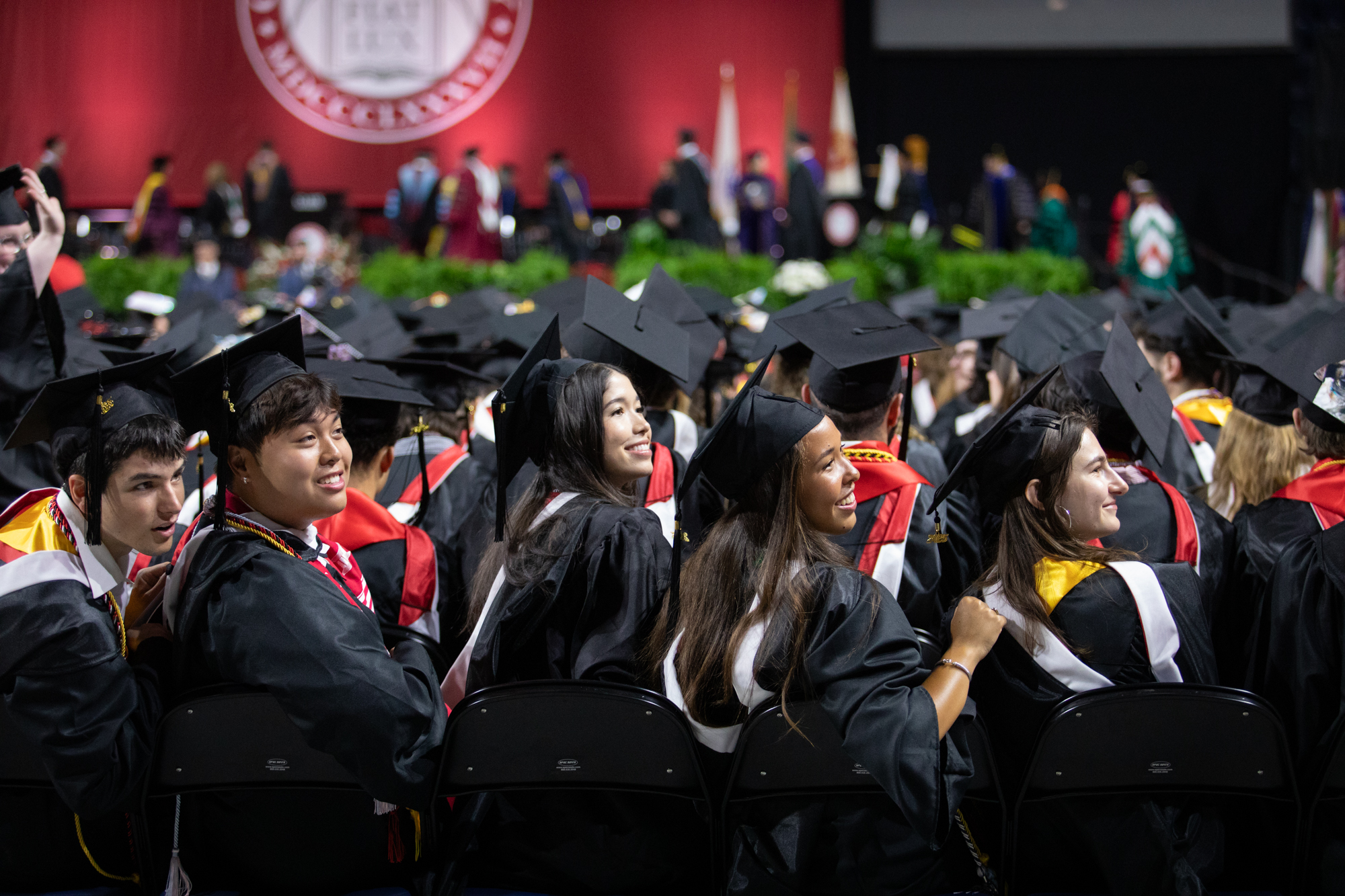Pursuing master’s degree at Brown University School of Public Health
MiKayla Dotson ’23 at the Multicultural Graduation celebration.
MiKayla Dotson ’23 was working as a student ambassador when a chance encounter led to an internship. Leading a father-and-son pair on a tour of the Clark campus, Dotson quickly discovered that she and the parent had similar research interests. The father was Aaron Haddock, director of behavioral health initiatives at Clark’s Mosakowski Institute for Public Enterprise.
“It’s one of my favorite Clark stories,” says Dotson, a psychology major. She developed a rapport with Haddock and was able to land a research fellowship at the institute, where she cultivated project-management and problem-solving skills.
“After a meeting with Dr. Haddock, I feel like I can be a neuroscientist and a rocket scientist all at once,” Dotson says with a laugh. “He truly has been inspirational in my academic journey and professional development, along with (Mosakowski Institute) Director Nadia Ward.”
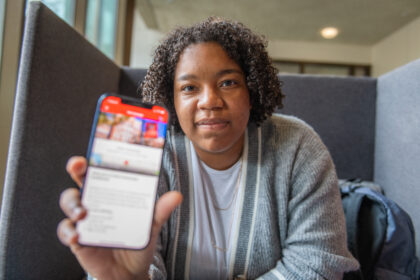 At the institute — which is internally nicknamed “the house of ideas” — Dotson created the Clark University Guide app with Charlie Trey-Masters ’23, another research fellow. The pair sought to address the isolation, loneliness, and confusion some students feel during their first year on campus as they navigate what can seem like a labyrinth of new classes, friends, and clubs.
At the institute — which is internally nicknamed “the house of ideas” — Dotson created the Clark University Guide app with Charlie Trey-Masters ’23, another research fellow. The pair sought to address the isolation, loneliness, and confusion some students feel during their first year on campus as they navigate what can seem like a labyrinth of new classes, friends, and clubs.
“There are so many things you want to do, and it gets overwhelming very fast,” Dotson says, recalling her first year at Clark. “Having a resource that organizes everything from booking a study room to paying their bill, connecting with their classmates to checking out the dining hall menu, allows first-year students to do things quickly and efficiently.”
Dotson played on the women’s basketball team for three years as a power forward and center, after being recruited by Clark at the Brown University basketball showcase for high school players. In a full-circle moment, Dotson is now heading to the Brown University School of Public Health to pursue a master’s in public health with a concentration in epidemiology.
Growing up in Greenville, Mississippi, with two surgeons as parents, Dotson was naturally interested in the world of medicine and health care. Her father specializes in orthopedics and her mother specializes in trauma and general surgery and colorectal care. Their professional standing meant quality health care was always easily accessible for Dotson. After starting college, Dotson realized her experience was uncommon. She’s starting graduate school determined to reduce health care inequities.
“My goal in life is to create mental health care systems and services that don’t feel like mental health care systems and services,” Dotson says. “I want to create systems that attack problems at the root and find preventative solutions. A lot of people get caught in barriers, and I want people to be able to enjoy life.”
Making that vision a reality won’t happen overnight.
“The revolution doesn’t happen all at once,” she says. “We need people who are compassionate but also strategic in thinking about how we can change this world little by little. We need smart and caring people on a provider level who also understand that this is not a business of systems. It’s a business of people, and people deserve to be treated like humans.”
Dotson is interested in using technology to improve mental health care, perhaps at a startup company. Global health is another area of interest.
“I think of myself as analytically creative,” she says. “Thinking about the structure of the human psyche and how many ways it can be explored is really what drew me to this field.”
Dotson completed a thesis examining barriers to mental health care for Black youth, a project she presented at ClarkFEST.
“This came from a personal place,” she says. “Even though I’ve had great experiences with therapy and I strongly believe in mental health care — so much so that I want to work in it — why is it that my peers don’t?”
She researched historical, social, and cultural barriers to health care for Black youth ages 18 to 24. Dotson took a deep dive into exploring how mental health care has been classified and disseminated, including a trip home to Mississippi to ask plantations for access to slave records. She also studied how the culture of Blackness affects mental health care and how many Black providers are available on different insurance plans.
“I found that Black women therapists are crucial for Black youth,” she says. “I want to continue that research at Brown and apply a public health lens to determine how we can address the mental health care crisis in a broader, more worldly view.”
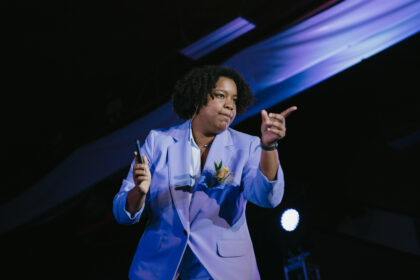
During her Clark days, Dotson served as president of the Clark Athletics Inclusion Coalition, education chair of the Black Student Union, and as a member of the Athletics Diversity, Equity, and Inclusion Committee. She’s also been a peer mentor. This year, Dotson received the President’s Achievement Award for Inclusive Excellence. She received the award twice before, as part of Rise for Racial Justice in 2021 and the Clark Athletics Inclusion Coalition in 2020.
Of her long list of Clark experiences, Dotson has a favorite moment from her four years on campus: co-hosting International Gala 2023 with Zainab Cheema, Alec Hoffman, and Evelyn Ward.
“I’m a silly, goofy person outside all my work,” she says. “We had a life-changing experience being on stage, telling jokes, dancing together. It is something I will always cherish.”


